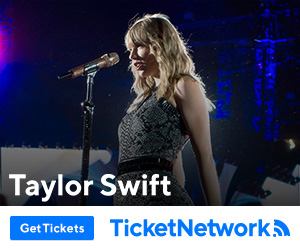Discrimination and Racism in Sports
Discrimination and Racism in Sports: A Global Crisis Affecting All Levels of Competition
Sports have always been a powerful platform for unity and competition. Athletes, regardless of their race, gender, or background, bring people together. Yet, this ideal vision has often clashed with the ugly reality of discrimination and racism in sports. These deep-rooted issues persist in both professional and amateur sports, affecting not only athletes but also the broader social and political spheres.
This blog explores the origins, historical background, and current challenges posed by discrimination and racism in sports. It also dives into how these issues shape amateur and youth sports and discusses political and social implications. Moreover, we will look at how the world is tackling these problems and what the future holds for equity in sports.
Origins and History of Discrimination and Racism in Sports
To understand the current state of discrimination and racism in sports, it is essential to explore the historical context. Discrimination in sports did not emerge in isolation; it evolved in parallel with broader societal prejudices. Throughout history, sports have often mirrored the racial and social inequalities present in society.
In ancient Greece, women were barred from participating in the Olympic Games, and slaves were excluded from competing. Centuries later, these issues evolved into racial discrimination, particularly as colonialism and slavery shaped global attitudes toward non-white populations. In the 19th and early 20th centuries, sports leagues across the world institutionalized racial exclusion, barring athletes from competing based on skin color.
In the United States, the segregationist policies of the Jim Crow era seeped into professional sports. Black athletes were denied the opportunity to compete in major leagues such as Major League Baseball (MLB) and the National Football League (NFL). It wasn’t until 1947 when Jackie Robinson broke the color barrier in MLB that integration in American sports began, but the fight for equality was far from over.
Globally, South Africa’s apartheid regime from 1948 to 1994 serves as another stark example. The country’s policy of racial segregation extended into sports, preventing black South Africans from participating in events such as the Olympics. Even after apartheid was abolished, the remnants of racial inequality in South African sports persisted for years.
The Problem of Discrimination and Racism in Sports Today
Despite significant progress, discrimination and racism in sports remain prevalent in many parts of the world. The issue transcends racial boundaries, encompassing gender discrimination, homophobia, and xenophobia. In professional sports, instances of racism and discrimination are regularly highlighted, especially in soccer (football), where players of color face racist chants and abuse from fans.
In Europe, where soccer holds immense cultural significance, racism is a particularly alarming issue. Players like Samuel Eto’o, Raheem Sterling, and Mario Balotelli have all been targets of racial abuse during matches. Governing bodies like FIFA and UEFA have imposed fines and bans on teams and fans who engage in such behavior. However, the punishments are often seen as insufficient, leaving athletes vulnerable to continued abuse.
Racism in sports extends beyond spectators. Players, coaches, and even sports organizations contribute to the problem. Hiring practices in many professional leagues show a lack of diversity among coaches and management positions. For example, in the NFL, despite nearly 70% of players being African American, only a small percentage of head coaches and general managers are black.
In tennis, Naomi Osaka, Serena Williams, and other athletes have faced scrutiny not for their performance but for their race and gender. They have been subjected to negative media portrayals that play into stereotypes about black women. Such incidents highlight the double standards faced by athletes of color, where their race is used as a tool for criticism.
Discrimination and Racism in Amateur Sports and Youth
The impact of discrimination and racism in sports is perhaps most damaging at the amateur level, where young athletes form their identities and aspirations. Schools and youth sports programs are meant to foster inclusion, teamwork, and equality, but too often, discrimination and racism infiltrate these environments.
In school sports, students from minority backgrounds may face racial slurs from their peers, creating a hostile atmosphere. This environment affects their self-esteem and limits their opportunities for success. Discrimination also occurs in the form of stereotyping. Athletes of color may be pigeonholed into certain sports based on racial stereotypes, such as black athletes being pushed toward basketball or football, while being discouraged from participating in sports like swimming or golf.
This stereotyping can limit the growth of young athletes, both mentally and physically. A black swimmer, for instance, may struggle to find role models who look like them, leading to feelings of isolation. The lack of diversity in many sports at the youth level also affects coaching and training opportunities. Minority athletes may not receive the same resources and support as their white counterparts, further widening the gap in opportunities.
Girls and young women of color face a unique set of challenges. They experience discrimination based on both their gender and their race. In many cases, they are underrepresented in sports leadership positions, both as athletes and as coaches. The result is an even smaller pool of role models and mentors, which can stifle their development and limit their engagement with sports.
Political and Social Significance of the Problem
The prevalence of discrimination and racism in sports is not just a reflection of the sports world; it is deeply intertwined with broader political and social dynamics. Sports are often a microcosm of society, and the discrimination and racism witnessed on the field mirror what happens off it.
Politically, sports have long been used as a platform for protest and activism. During the civil rights movement in the United States, athletes like Muhammad Ali and Tommie Smith used their visibility to protest racial injustice. Smith and John Carlos’s raised fists during the 1968 Olympics became an iconic image of resistance against racism.
In recent years, athletes such as Colin Kaepernick have continued this tradition. His decision to kneel during the national anthem as a protest against police brutality sparked national debates about race, patriotism, and free speech. Kaepernick’s actions cost him his NFL career but ignited a global conversation about racism in sports and society. These actions illustrate how sports are inextricably linked to political issues, particularly those concerning race and equality.
Socially, discrimination and racism in sports have wide-reaching implications. Sports are a unifying force, bringing together people from diverse backgrounds. When racism and discrimination permeate this world, it sends a damaging message to society, suggesting that divisions based on race, gender, or ethnicity are acceptable.
Moreover, sports often serve as one of the most visible platforms for representation. When athletes of color succeed, they become symbols of hope and progress. However, when they are subjected to racism and discrimination, it not only affects them individually but also damages the image of inclusivity that sports are supposed to represent. The impact of discrimination in sports reverberates far beyond the field, influencing how societies perceive race relations and equality.
Addressing Discrimination and Racism in Sports
Efforts to combat discrimination and racism in sports have been gaining momentum in recent years. Several organizations, athletes, and activists have dedicated themselves to eradicating these issues from the sporting world. Governing bodies such as FIFA, the NFL, and the International Olympic Committee have taken steps to address racism by imposing fines, banning fans, and launching awareness campaigns.
However, these actions are often viewed as reactive rather than proactive. Critics argue that more comprehensive measures are needed, including education, mentorship, and systemic changes within sports organizations. It is not enough to simply punish those who engage in racist behavior. Preventive strategies that promote diversity and inclusion from the ground up are essential.
Athletes have also taken a more active role in advocating for change. Many, like LeBron James, have used their platform to speak out against racial injustice. These athletes often leverage their massive following on social media to bring attention to issues of discrimination and inequality. This has led to greater visibility of the problems and increased pressure on sports organizations to take meaningful action.
In schools and youth programs, efforts are being made to promote inclusivity and combat racism at an early stage. Diversity training for coaches and administrators is becoming more common, and programs aimed at creating safe spaces for minority athletes are being implemented. While these efforts are steps in the right direction, much more remains to be done, particularly in making sports leadership positions more diverse.
Legislatively, some countries have enacted policies that mandate equal representation in sports governing bodies. South Africa, for instance, has introduced quota systems to ensure that black athletes are adequately represented in national teams. While controversial, these measures aim to redress the imbalances created by decades of discrimination.
What to Expect in the Future
The fight against discrimination and racism in sports is far from over, but there is hope for meaningful progress. As society becomes more aware of racial and social inequalities, the sports world is being forced to confront its own shortcomings. The increased willingness of athletes to speak out against racism is a sign of change. This activism is expected to grow, with more athletes using their platforms to push for systemic reforms.
Technological advancements, particularly social media, have also played a crucial role in amplifying voices that call for change. Athletes and fans can now hold sports organizations accountable in real-time, pushing for quicker and more effective responses to incidents of discrimination.
In the long term, education will be a critical tool in addressing the issue. Sports organizations and schools must invest in diversity and anti-racism training for all participants, from athletes to coaches and officials. This will help to create a culture of inclusion that transcends the boundaries of race and gender.
Moreover, representation at all levels of sports must improve. Ensuring that people from diverse backgrounds have leadership roles in sports organizations will foster a more inclusive environment. Diversity in decision-making positions will allow for policies and practices that are more attuned to the challenges faced by minority athletes.
Finally, the role of governments and legislation cannot be understated. Countries that prioritize equality in sports through policies and funding will set the stage for broader societal changes. By integrating these issues into national policies, governments can ensure that sports remain a platform for unity and inclusion.
Conclusion
Discrimination and racism in sports remain pressing issues that reflect broader societal problems. From historical exclusion to modern-day racism, these challenges have deep roots and affect athletes at all levels. However, the growing awareness and activism surrounding these issues offer hope for a more equitable future.
While progress has been made, the fight is far from over. Schools, organizations, athletes, and governments must work together to create lasting change. Only then can sports fulfill their potential as a space where people from all walks of life come together to compete, collaborate, and celebrate humanity’s shared achievements.






